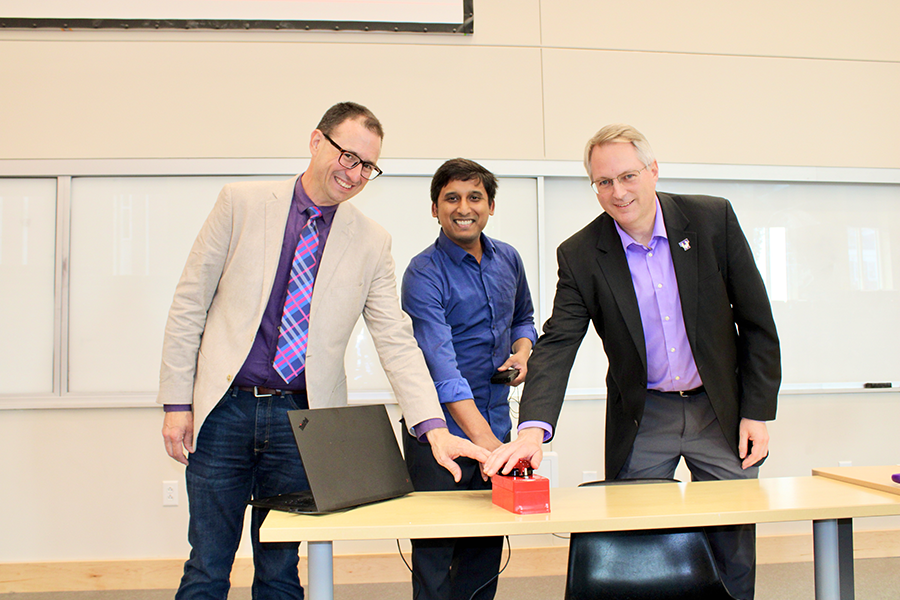Computer Science
Science DMZ network boosts research capabilities at Tech

(From Eagle Drive magazine, December 2023)
Faster and more secure.
That’s what every researcher likes to hear when it comes to large data transfers and
safe equipment connections – especially at Tennessee Tech, where a Science DMZ (Demilitarized
Zone) network can deliver those benefits and more for all academic and research departments
on campus.
Computer Science Assistant Professor Susmit Shannigrahi said the sophisticated network,
launched in July 2023, boosts Tech’s research and data capabilities and makes collaborations
easier since it offers a secure, high-bandwidth pathway.
“It fosters collaborations not only within the university but also with external partners,
both nationally and internationally, enabling seamless data sharing and joint research
endeavors,” he said.
Tech’s Science DMZ was funded through a two-year $276,000 grant from the National
Science Foundation. Shannigrahi is the principal investigator alongside co-PI Mike
Rogers, associate professor of computer science. Tech’s Cybersecurity Education, Research
and Outreach Center helped facilitate the grant, and Information Technology Services
implemented the network.
Designed for high-performance applications, the Science DMZ further enhances opportunities
for faculty and student researchers and campus centers.
“It provides dedicated systems for data transfers, as well as performance measurement
and network testing tools,” Shannigrahi said. “It also provides a more flexible infrastructure
for research while maintaining robust security measures.”
Furthermore, it comes at a record-setting time at Tech. Recognized as an R2 doctoral,
high-research activity university by the Carnegie national classification system,
it received more than $36.3 million in externally funded research during the last
fiscal year.
The timing was also ideal for CEROC’s new associate director of research, Stacy Prowell,
Ph.D., who also serves as a distinguished cybersecurity researcher at Oak Ridge National
Laboratory.
“The Science DMZ basically connects us to that network,” Prowell said. “If we want
to collaborate with Oak Ridge or other universities, we can move very large datasets
around. You can also set up isolated networks to do the kinds of security testing
and experiments I’m interested in. A whole lot of opportunities have opened up.”
As for future applications, the Science DMZ will play a vital role in the Ashraf Islam
Engineering Building, a forthcoming 100,000-square-foot facility for the College of
Engineering.
“As the first ‘smart building’ on campus, it will leverage the Science DMZ’s capabilities
to support innovative research, experimentation and data analysis within its premises,”
Shannigrahi said.
Shannigrahi also noted that the network has the potential to facilitate groundbreaking
research across multiple disciplines, including computer science, physics, biology
and chemistry.
“As the Science DMZ gains momentum, it will strengthen Tennessee Tech’s position as
a leading hub for cutting-edge research and innovation, attracting top talent and
driving transformative discoveries,” he said.
Lean More About Our Programs

